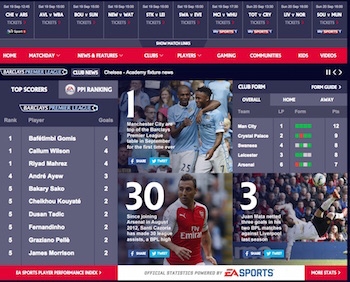Most professional football clubs in England and Scotland leave players to handle their own tax affairs, potentially allowing footballers to fall foul of tax avoidance schemes, according to a report by BDO.
The report from accountancy and advisory firm BDO LLP – The Annual Survey of Football Club Finance Directors 2015- found that when it comes to HMRC’s targeting of individuals using so-called ‘aggressive’ tax avoidance schemes, the majority (85%) of finance directors believe that this is not an issue for the club.
However 12% of clubs do concede it is a concern, with scrutiny from the taxman being cause for player distraction on the pitch. The results also indicate that 60% of clubs do not get involved in HMRC tax enquiries relating to agents fees and image rights payments, describing them to be ‘largely a player matter’. Again, a handful of clubs (8%) say that HMRC enquiries into these matters can be a distraction for players, while 15% believe it will change the way clubs deal with agents and structure payments.
English top-flight clubs are more concerned about the changing definitions of tax planning and avoidance than other leagues. Some 15% of clubs in the English Premier League, compared to 9% in Football League One and 6% in Football League Two, highlighted this as a worry.
{desktop}{/desktop}{mobile}{/mobile}
Richard Morley, partner in the tax dispute resolution team at BDO LLP, said: “Clubs feel that continued compliance activity from HMRC is a matter for players, rather than the club. This has been echoed by HMRC’s own activity over the last year, which has largely focused on the individual.
“Footballers are clearly targeted by promoters of tax avoidance schemes due to their huge salaries with most players sold these schemes in the belief they are a genuine and legitimate way of reducing their tax demands. However, with HMRC’s ongoing crackdown around tax avoidance, many players that invested in these schemes are now in serious financial difficulty facing hefty tax bills and on the receiving end of large APN’s (Accelerated Payment Notices) which have no right of appeal.
“This demonstrates a clear need for clubs to think more carefully about their players’ future wellbeing. Financial distractions can bring a huge amount of worry, which in-turn may divert attention from their performance on the pitch. Players also have a role to take and need to consider more carefully the quality of tax advice they receive. For anyone that may have invested in one of these schemes we would urge them to seek up to date financial advice and to carefully review the scheme in order to properly understand the details and options available to them.”
The research involved extended telephone interviews with finance directors in 60 clubs across the English Premier League, the Football League and the Scottish Premiership. Interviews were undertaken in May and June 2015.

